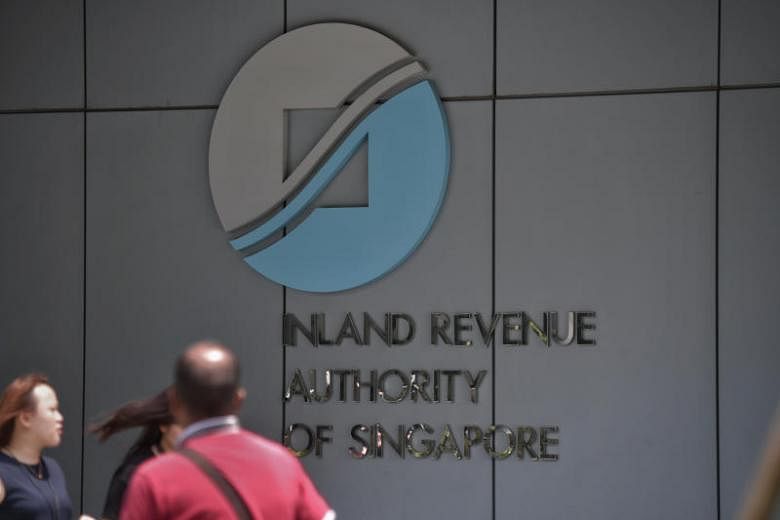SINGAPORE - An upcoming bill to allow the taxman to investigate serious crimes will be tweaked to clarify how these powers can be exercised, following a public consultation earlier this year.
The earlier version of the draft Goods and Services Tax (Amendment) Bill included the ability for Inland Revenue Authority of Singapore (Iras) officers to forcibly enter premises and conduct body searches. They also would have been able to arrest people suspected of having committed serious tax crimes without having a warrant.
Now, the proposed changes to the Goods and Services Tax (GST) Act will state that such arrest powers will only apply to people with no reasonable excuse to resist officers from taking any document or items for investigation purposes.
The Ministry of Finance (MOF) said on Thursday (Sept 27): "We note that individuals may, in limited circumstances, have valid reasons to refuse handing over documents or items to Iras officers for investigation."
This might occur, for example, in cases where the information requested by the Iras is subject to legal privilege.
The taxman will also provide more information about the other powers on body searches and entering premises if the amendments are passed in Parliament.
The MOF said: "The proposed powers are to be exercised only when necessary, such as to secure evidence for the investigation of tax crimes. In addition, these powers can only be exercised by designated tax investigators who have received training."
It added that the Iras will have clear guidelines and operational protocols on when these powers can be used. These will be taught to investigators, similar to the process at other law enforcement agencies.
These two changes are in response to the MOF's public consultation exercise with individuals and organisations in June. There were 70 suggestions raised with 47 accepted.
The Ministry rejected several suggestions relating to the GST on imported services that kicks in on Jan 1, 2020.
The draft bill seeks to impose an Overseas Vendor Registration (OVR) regime on business-to-consumer imported services, such as video and music streaming, apps, listing fees on electronic marketplaces, software and online subscription fees.
A reverse charge system will be used for businesses-to-businesses imported services - including marketing, accounting, IT and management services.
Some respondents wanted more flexibility for overseas GST-registered suppliers under the OVR regime on how to determine status of customers - such as whether they reside within or outside Singapore.
The MOF did not accept the suggestion, stating that the current approach in the draft bill will need these suppliers to obtain payment, residence and access details, a process consistent with how other countries carry out OVR systems.
This is done through the credit card used, the billing address submitted by the customer and his or her Internet Protocol address.
"The proposed approach is unlikely to impose significant compliance cost on businesses as the information prescribed is typically already gathered by the supplier in the normal course of business," said the MOF.
Some people also wanted a similar concession for the reverse charge regime, to determine if suppliers are subject to the regime through its GST-registration status in Singapore.
The MOF said the GST-registration status may not accurately reflect whether services are imported from overseas.
Other accepted suggestions include:
- To simplify the administration requirements for overseas suppliers registered under the OVR regime, only records of digital services supplied to customers in Singapore will be required, not all customers in and outside Singapore.
- The Bill had called for a custodial sentence against those who are unauthorised to collect GST without a reasonable excuse or who are negligent. The Iras will now provide more details on its website on when these penalties can be meted out if the offence is committed by GST-registered businesses.
- The Iras will also provide more details on specific tax rules, such as the transitional arrangements for supplies that straddle the implementation date for GST on imported services in Jan 1, 2020. It will do so in revised e-Tax Guides for the reverse charge and OVR by Jan 2019.
The Bill is slated to be introduced in Parliament next month.


